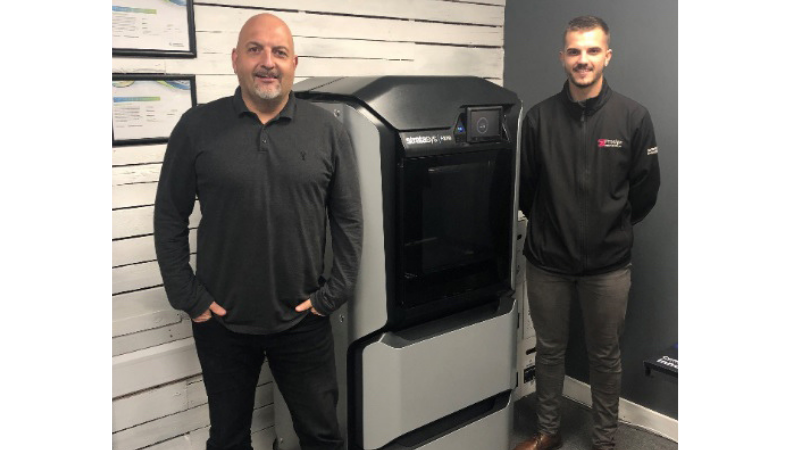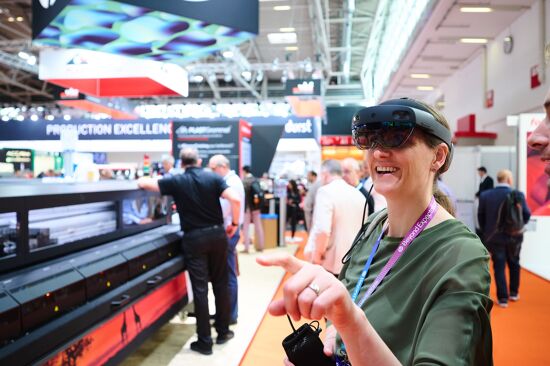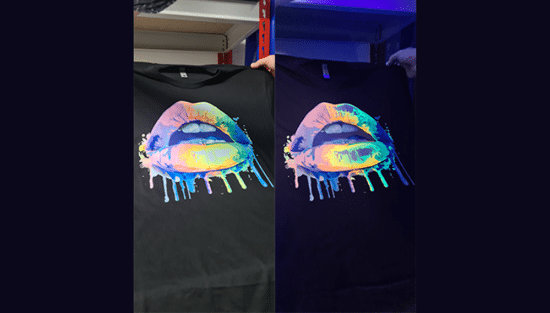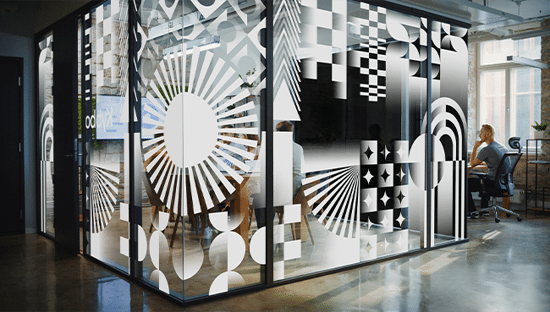Prosign Print and Display eyes 3D print expansion
.png?width=750)
UK-based large-format printing and signage specialist Prosign Print and Display has opened up about its decision to expand into the 3D print market, saying how this has allowed to take advantage of the amount of work on offer and expand its overall service offering in the process.
The Nottingham company primarily focuses on traditional print work such as point-of-sale, packaging, exhibition graphics and signage, but the business identified new opportunities in the flourishing 3D print sector.
Steve Hardy, owner and managing director of Prosign, said the exhibitions and events sector in particular offers a number of attractive prospects for the firm in terms of growing its business.
“We design and custom build a lot of stands for tradeshows, which typically comprise creative wall displays that need to incorporate things like brackets, hooks and hinges,” Hardy said.
“The problem is that we find ourselves often de-valuing a beautifully designed display as we invariably have to make-do with generic off-the-shelf fixings. Not only that, but we are usually obliged to purchase these in bulk, which means we end up with far more than we need.”
To support its move into 3D print, Prosign invested in an FDM-based F370 3D printer from market specialist Stratasys.
Hardy said the company has already started to win new 3D print projects, such as producing functional items, as well as an interior design project that saw the firm design and 3D print customised lampshades to match a specific multi-coloured copper-surfaced theme.
“We never imagined that we could produce such stunning bespoke items for customers as the lampshades, but as we’ve explored what is achievable, we’ve learned there’s so much more we can do,” Hardy said.
“We now go into customer meetings with the confidence to suggest creative ideas, knowing that we have the firepower to realise them.”
Hardy added that Prosign is also looking outside of markets directly related to traditional print, giving the example of how the company was able to reverse-engineer a discontinued part for a breathalyser machine required by a bus company for its drivers.
With this in mind, Hardy said that plans are in place for Prosign to add a service bureau arm to its offering in order to open up further opportunities for work elsewhere.
“This is partly why we made the investment in the F370 – for the potential to drive new revenue streams and give us the versatility to explore new opportunities beyond our existing mainstay activities,” he said.
“In business, you don’t get anywhere by standing still, but the F370 enables us to move forward and push boundaries as we do so.”
Topics
Interested in joining our community?
Enquire today about joining your local FESPA Association or FESPA Direct
Recent news

Streamlining personalisation with tech: Insights from the SmartHub Conference 2025 speakers
Personalisation Experience 2025 (6 – 9 May 2025, Messe Berlin, Germany) is running its inaugural SmartHub Conference from 6 – 8 May 2025.

Special Effects in DTF: How Neon Inks Are Making Apparel Pop
Neon fluorescent inks are the latest innovation in DTF printing, offering vibrant, eye-catching effects under both daylight and UV light, giving apparel decorators a competitive edge. Testing shows good wash durability, though market perception of added value is still developing. With increasing adoption and ongoing technological advancements, neon represents a significant upgrade for creative customisation.

Unlocking Growth Opportunities in the Printed Personalised Apparel Industry
The printed personalised apparel industry is booming, projected to reach $10.1 billion by 2030. Driven by consumer desire for self-expression and branding needs, technological advancements like DTG/DTF and e-commerce integration are key. Sustainability, eco-friendly materials, and on-demand printing are crucial growth drivers. Businesses leveraging these trends, including AI and social media, have significant commercial potential.

How to grow your business with white ink applications
Opaque white ink is revolutionising signage, vehicle graphics, wallcoverings, short-run and wood packaging, and window blinds by enhancing vibrancy and clarity. This enables printers to offer high-demand, standout products, boosting profit margins. HP Latex white ink applications and their large format printing solutions will be showcased at FESPA 2025 in Berlin.